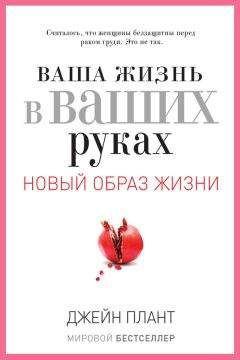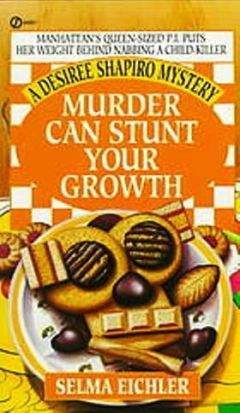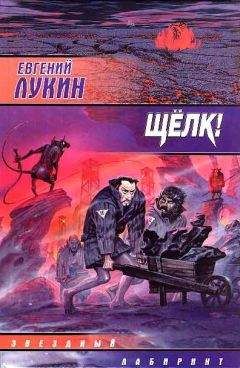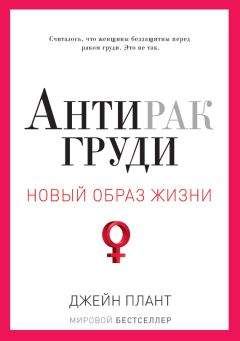72. Reiter, E. and others, 1999. Effects of pituitary hormones on the prostate. Prostate, 38 (2), 159–165; Lamharzi, N. and others, 1998. Luteinising hormone-releasing hormone (LH-RH) antagonist Cetrorelix inhibits growth of DU-145 human androgen-independent prostate carcinoma in nude mice and suppresses the levels and mRNA expression of IGF-2 in tumors. Regulatory Peptides, 77 (113), 185–192; Jungwirth, A. and others, 1997. Luteinising hormone-releasing hormone (LH-RH) antagonist Cetrorelix (SB-75) and bombesin antagonist RC-3940-2 inhibit the growth of androgen-independent PC-3 prostate cancer in nude mice. Prostate, 32 (3), 164–172; Maeza-wa, H. and others, 1997. Potentiating effect of buserelin ace-täte, an LHRH agonist on the proliferation of ventral prostatic epithelial cells in testosterone-treated castrated rats. Int J Urol,
4 (4), 411–416; Using, АЖ and others, 1993. Serological precursors of cancer serum hormones and risk of subsequent prostate cancer. Cancer Epidemiol Biomarkers Prev, 2 (1), 27–32; Garde, S. and others, 1993. Effect of prostatic inhibiting peptide on prostate cancer cell growth in vitro and in vivo. Prostate, 7 (2), 183–194.
73. Bosland, M.C., 1996. Hormonal factors in carcinogenesis of the prostate and testis in humans and in animal models. Progress in Clinical and Biological Research, 394, 309–352.
74. Chapman, S. and others, 1992. Changes in adult cigarette consumption per head in 128 countries, 1986–1990. Tobacco Control, 1,281–284.
75. http://www.who.int
76. Chapman, S. and others, 1992. Changes in adult cigarette consumption per head in 128 countries, 1986–1990. Tobacco Control,, 1.281–284.
77. http://www.who.int
78. http://www.13.waisays.com/cancer2.htm
79. Underwood, L.E., D’Ercole, J.A. and Van Wyk, J.J., 1980. So-matomedin-C and the assessment of growth. Ped ClinN Amer,
27, 4, 771–782, and Perdue, J.E 1984. Chemistry, structure and function of insulin-like growth factors and their receptors: a review. Can J Вiochem Cell Bio, 62, 1237–1245.
80. http://vw.com/healthnews/milk.html
81. Pollack, Michael, 2003. Cancer, aging and IGF physiology. Meeting of the Royal Society of Medicine in London in October 2003, entitled „Biology of IGF-I: its interaction with insulin in health and malignant statescc.
82. Lonning, Per Eystein, 2003. IGF-I and breast cancer. Meeting of the Royal Society of Medicine in London in October 2003, entitled „Biology of IGF-I: its interaction with insulin in health and malignant statescc.
83. Yee, Doug, 2003. Targeting the IGF system for anti-tumour therapy. Meeting of the Royal Society of Medicine in London in October 2003, entitled „Biology of IGF-I: its interaction with insulin in health and malignant statescc.
84. Pollack, Michael, 2003. Cancer, aging and IGF physiology. Meeting of the Royal Society of Medicine in London in October 2003, entitled ‘Biology of IGF-I; its interaction with insulin in health and malignant states’.
85. Holly, Jeff, 1998. Insulin-like growth factor-1 and new opportunities for cancer prevention. Lancet, 351, 9113, 9 May, 1373–1375.
86. Chan, J.M., Stampfer, M.J., Giovannucci, E. and others, 1998. Plasma insulin-like growth factor-I and prostate cancer risk; a prospective study. Science, 279, 563–566; Harman, S.M., Metter, E.J., Blackmail, M.R., Landis, EK. and Carter, H.B., 2000. Serum levels of insulin-type growth factor 1 (IGF-I), IGF II, IGF-binding protein-3, and prostate-specific antigen as predictors of clinical prostate cancer. J Clin Endocrinol Metab, 85, 4258–4265; Stattin, E and nine others, 2000. Flasma insulin-like growth factor-I insulin-like growth-binding proteins, and prostate cancer risk: a prospective study. J Natl Cancer Inst, 92, 1910–1917; Chokkalingam, A.F, and 12 others, 2001. Insulinlike growth factors and prostate cancer: a population-based case-control study in China. Cancer Epidemiol Biomarkers Prev, 10, 421–427; Chan, J.M., Stampfer, M.J., Ma, J. and others, 2002. Insulin-like growth factor-I (IGF-I) and IGF binding protein-3 as predictors of advanced-stage prostate cancer. J Natl Cancer Inst, 94, 1099–1106; Mantzoros, C.S., Tzonou, A., Signorello, L.B. and others, 1997. Insulin-like growth factor 1 in relation to prostate cancer and benign prostatic hyperplasia. British Journal of Cancer, 76, 1115–1118; Wolk, A., Mantzoros, C.S., Anders-son, S.O. and others, 1998. Insulin-like growth factor 1 and prostate cancer risk: a population-based, case-control study. J Natl Cancer Inst, 90, 911–915; Holly, J.M.E, Gunnell, D.J. and Davey Smith., G, 1999. Growth hormone, IGF-1 and cancer. Less intervention. Less intervention to avoid cancer? More intervention to prevent cancer. J Endocrinol, 162, 321–330.
87. Yu, H. and others, 1999. Flasma levels of IGF-I and lung cancer risk, Journal of the National Cancer Institute, 91, 151–156.
88. Ma, J. and others, 2001. Milk intake, circulating levels of IGF-1 and risk of colorectal cancer in men. Journal of the National Cancer Institute, 93 (17), 1330–1336.
89. LeRoith, D. and others, 1995. The role of the IGF-I receptor in cancer. Annals of the New York Academy of Sciences, 766, 402–408; Butler, J., 2006. White lies. Vegetarian and Vegan Foundation.
90. Campbell, T. Colin, Campbell, Thomas M. II, Robbins, John and Lyman Howard, 2006. The China Study: The Most Comprehensive Study of Nutrition Ever Conducted and the Startling Implications for Diet, Weight Loss and Long-term Health. Ben-bella Books.
91. Bradford Hill, A., 1965. The environment and disease; association or causation? Proceedings of the Royal Society of Medicine,
58, 295–300.
92. Holly, J.M.P., Gunnell, D.J. and Davey Smith, G., 1999. Growth hormone, IGF-I and cancer. Less intervention. Less intervention to avoid cancer? More intervention to prevent cancer. J Endocrinol, 162, 321–330.
93. Bobbins, John, 1987. A Diet for a New America, Stillpoint Publishing.
94. www.dhn.csiro-au/crctissue.html
95. Xian, C., 1995. Degradation of IGF-I in the Adult Rat Gastrointestinal Tract is limited by a Specific Antiserum of the Dietary Protein Casein .Journal of Endocrinology, 146, 2, 1 August, 215; Thornburg, Ж and others, 1984. Gastrointestinal absorption of epidermal growth factor in suckling rats. American Journal of Physiology, 246, G80-G85.
96. The European Commission. Health and Consumer Protection. Scientific Committee on Veterinary Measures relating to Public Health – Outcome of discussions.
http://europa.eu.int/comm/dg24/health/ sc/scv/ outl9_en.html
97. Allen, N.K, and others, 2000, Hormones and Diet; Low Insulin-like Growth Factor-1 but Normal Bioavailable Androgens in Vegan Men. Brit J Cane, 83 (1), 95–97.
98. Steinman, G., 2006. Can the chance of having twins be modified by diet? The Lancet, 367 (9521), 1461–1462.
99. Norat and others, 2007. Diet, serum IGF-1 and IGF-BP3 in European women. European Journal of Clinical Nutrition, 61, 91–98.
100. The European Commission. Health and Consumer Protection. Scientific Committee on Veterinary Measures relating to Public Health – Outcome of discussions. http://europa.eu.int/comm/dg24/health/sc/scv/outl9_ en.html
101. Heaney, R.P. and others, 1999. Dietary changes favourably affect bone remodelling in older adults, Journal of the American Dietetic Association, 99 (10), 1228–1233.
102. Gunnell, D.L. and 10 others, 2003. Are diet – prostate-can-cer associations mediated by the IGF axis? A cross-sectional analysis of diet, IGF-I and IGFBP-3 in healthy middle-aged men. British Journal of Cancer, 88, 1682–1686.
103. World Cancer Research Fund, 1997. Food, nutrition and the prevention of cancer: a global perspective. Washington, DC: American Institute of Cancer Research.
104. Allen, N.E., Appleby, P.N., Davey, G. K. and Key, T.J., 2000. Hormones and diet: low insulin-like growth factor-I but normal bioavailable androgens in vegan men. Br J Cancer. 83, 95–97.
105. Yaker, S. and others, 2005. The role of the growth hormone/ IGF axis in tumour growth and progression: lessons from animal models. Cytokine and Growth Factor Reviews, 16 (4–5), 407–420; Butler, J., 2006. White lies. Vegetarian and Vegan Foundation.
106. Mannisto, S. and others, 1999. Diet and the risk of breast cancer in a case control study: does the threat of disease have an influence on recall bias? Journal of Clinical Epidemiology, 52 (5), 429–439; Outwater, J.L. and others, 1997. Dairy products and breast cancer: the IGF-1, estrogen and bGH hypothesis. Medical Hypotheses, 48 (6), 453–461; Gaard, M. and others, 1995. Dietary fat and the risk of breast cancer: a prospective study of 25 892 Norwegian women. Int J Cancer, 63 (1), 13–17; Decarli, A. and others, 1986, Environmental factors and cancer mortality in Italy: correlational exercise. Oncology, 43 (2), 116–126; Rose, D.P. and others, 1986. International comparisons of mortality rates for cancer of the breast, ovary, prostate, and colon, and per capita food consumption. Cancer, 58 (11), 2363–2371; Shimada, A. and others, Ecological approach to the eating habits and the cancer mortality of Brazilian people, (in het Japans) Can No Rinsho, 32 (6), 631–640; La Vecchia, C. and others, 1986, Age at first birth, dietary practises and breast cancer mortality in various Italian regions. Oncology, 43 (1), 1–6; Talamini, R. and others, 1984. Social factors, diet and breast cancer in a northern Italian population. Br J Cancer. 49 (6), 723–729.
107. Rose, D. P. and others, 1986. International comparisons of mortality rates for cancer of the breast, ovary, prostate, and colon, and per capita food consumption. Cancer, 58 (11), 2363–2371.
108. Schuurman, A.G. and others, 1999, Animal products, calcium and protein and prostate cancer risk in The Netherlands Cohort Study, Br J Cancer, 80 (7), 1107–1113; Giovannucci, E., 1999. Nutritional factors in human cancers. Advances in Experimental Medicine and Biology, 472, 29–42; Giovanucci, E., 1998. Dietary influences of 1,25 (OH)2 vitamin D in relation to prostate cancer: a hypothesis. Cancer Causes and Control, 9 (6), 567–582; Willet, WC., 1997. Nutrition and Cancer. Sa-lud Publica de Mexico, 39 (4), 298–309; De Stefani, E. and others, 1995, Tobacco, alcohol, diet and risk of prostate cancer. Tumori, 81 (5), 315–320; Le Marchand, L. and others, 1994. Animal fat consumption and prostate cancer: a prospective study in Hawaii. Epidemiology, 5 (3), 276–282; Talamini, R. and others, 1992. Diet and prostate cancer: a case control study in northern Italy. Nutrition and Cancer, 18 (3), 277–286; La Vecchia, C. and others, 1991. Dairy products and the risk of prostatic cancer. Oncology, 48 (5), 406–410; Mett-lin, C. and others, 1989. Beta-carotene and animal fats and their relationship to prostate cancer risk. A case control study. Cancer, 64 (3), 605–612; Snowdon, D.A., 1988. Animal product consumption and mortality because of all causes combined, coronary heart disease, stroke, diabetes, and cancer in Seventh-day Adventists. Am J Clin Nutr, 48 (3 Suppl), 739–748; Talamini, R. and others, 1986. Nutrition, social factors, and prostate cancer in a northern Italian population. Br J Cancer, 53 (6), 817–821; Rose, D.P. and others, 1986. International comparisons of mortality rates for cancer of the breast, ovary, prostate, and colon, and per capita food consumption. Cancer, 58 (11), 2263–2271.
109. Newby, JA. and Howard, 2006. Environmental influences in cancer aetiology, 2006, 1-59.
110. Butler, J., 2006. White lies. Vegetarian and Vegan Foundation.
111. Butler, J., 2006. White lies. Vegetarian and Vegan Foundation.
112. Lawrence R., 1994. Breastfeeding – A Guide to the Medical Profession, Fourth edition. Mossby.
113. Holly, J.M.P., Gunnell, D.J. and Davey Smith, G., 1999. Growth hormone, IGF-I and cancer. Less intervention to avoid cancer? More intervention to prevent cancer? J Endocrinol, 162, 321–330.
114. Giudice, L.A., 1992. Insulin-like growth factors and ovarian follicular development. Endocrine Reviews, 13, 641–669.
115. Westlev, B.R. and May, F.E.B., 1994. Role of insulin-like growth factors in steroid modulated proliferation. Journal of Steroid Bioehemistry and Molecular Biology, 51, 1–9; Marcelli, M., Haidacher, S.J., Plymate, S.R. and Birnbaum, R.S., 1995. Altered growth and insulin-like growth factor-binding protein-3 production in PC-3 prostate carcinoma cells stably transfected with a constitutively active androgen receptor complementary deoxyribonucleic acid. Endocrinology, 136, 1040–1048.
116. Holly, J.M.P., Gunnell, D.J. and Davey Smith, G., 1999. Growth hormone, IGF-I and cancer. Less intervention to avoid cancer? More intervention to prevent cancer? J Endocrinol, 162, 321–330.
117. Bernstein, I. and Ross, R.K., 1993. Endogenous hormones and breast cancer risk. Epidemiol Res, 15, 48–65; Pike, M.C. and others, 1993. Estrogens, progestogens, normal breast proliferation and breast cancer risk. Epidemiol Reviews, 15, 17–35.
118. Bocchinfuso, WF. and others, 2000. Induction of mammary gland development in estrogen receptor-alpha knoclout mice. Endocrinology; 141; 2983–2994; Attwood, C.S. and others,
2000. Progesterone induces side-branching of the ductal epithelium in the mammary glands of prepubertalmice. J Endocrinology, 167, 39–52.
119. Campbell, T. Colin, Campbell, Thomas M. II, Robbins, John and Lyman Howard, 2006. The China Study: The Most Comprehensive Study of Nutrition Ever Conducted and the Startling Implications for Diet, Weight Loss and Long-term Healths. Benbella Books.
120. www.breakthrough.org.uk
121. Campbell, T. Colin, Campbell, Thomas M. II, Robbins, John and Lyman Howard, 2006. The China Study: The Most Comprehensive Study of Nutrition Ever Conducted and the Startling Implications for Diet, Weight Loss and Long-term Health. Benbella Books.
122. Cramer, D.W and others, 1989. Galactose consumption and metabolism in relation to the risk of ovarian cancer Lancet, 2, 66–71.




